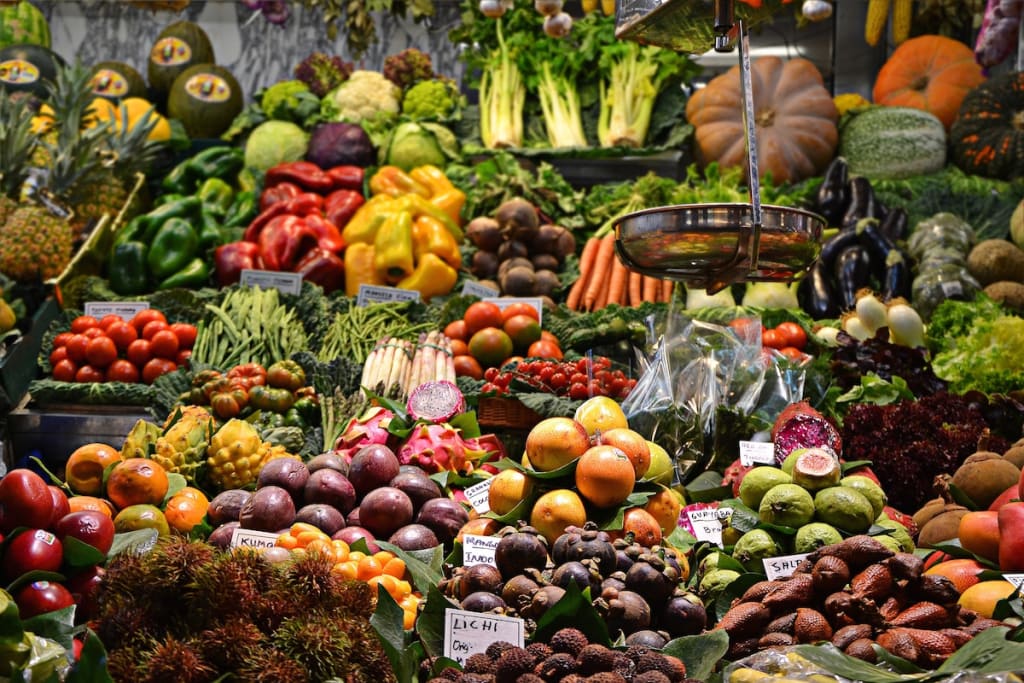Food Waste in the United States
What Is Being Done

What happens to all that restaurant food we do not eat? We waste it by throwing it away. What happens to food that expires in the grocery store? We also waste it. 15,000 tons of food is thrown away in households daily (The Guardian). A third of the daily calories Americans eat is wasted. The types of food thrown out the most are fruits and vegetables, followed by dairy and meat. We unnecessarily waste food. 30 million acres of land, 780 million pounds of pesticide, 4.2 tons of irrigated water. The thing is, according to this cited The Guardian article, rotting food clogs up landfills, releasing methane into the air, which is a greenhouse gas.
The US Department of Agriculture analyzed eight years of food data, up to 2014, just to see how food is wasted. People who are “healthy” waste a lot of fruits and vegetables. It would seem that fruits and vegetables are the easiest to throw out because they take less land to cultivate. When you plant a home garden, you notice how much land is required to plant fruits and vegetables. Lisa Jahns, a nutritionist at the USDA, knows that “We need a simultaneous effort to increase food quality as well as reduce food waste. We need to put both of those things out.”
Growing food at home may be part of the answer, as an agricultural experiment. American supermarkets are not addressing the issue of food waste at all. Walmart is shockingly considered better than Trader Joe’s with a B from this study. Aldi US was the worst, with Target and Whole Foods getting a D. Food waste is a huge problem that not every scientist is trying to address.
A terrifying statistic: $218 billion worth of food is thrown out every year with 52 billion pounds of food (Feeding America) from manufacturers, grocery stores, and restaurants. 20 billion pounds of fruits and vegetables are discarded on farms or left in fields to be plowed under. It would seem that 72 billion pounds of food are found in the incinerator every year. We have trouble feeding families who face hunger because they are low-income and can’t always afford food. 21 percent of volume landfill is actually food waste. Why are some people not always able to feed themselves? It isn’t about salary, although that’s a partial cause, it is about how we set up our financial system.
21 percent of fresh water is used to make food that is then discarded; this is a huge problem in California with the drought. We are still in a drought, anybody from California knows this. We do not have enough people working on the problem of food waste because of manufacturers, distributors, retailers, foodservice companies, and farmers that need intervention before food is wasted. Organizations such as Starbucks Foodshare, Second Harvest Food Bank, and Meal Connect try to get food to people who actually need it. The price of food itself, at least in California, is expensive because of the cost of living in California is so high.
Everybody needs food; what we do to our food on this planet is appalling.
This is because we have no idea how to stop our food waste. Few people are looking into resolving this problem. But the ones who are have tried at least. The income problem is worse than the food waste problem. This is another problem, with a totally different article. Food waste is something that may be worse in China than in the United States, or worse in countries that do not have ways of figuring out what to do with the food we do not eat.
Works Cited
http://www.feedingamerica.org/our-work/our-approach/reduce-food-waste.htmlm
https://www.theguardian.com/environment/2018/apr/18/americans-waste-food-fruit-vegetables-study
About the Creator
Iria Vasquez-Paez
I have a B.A. in creative writing from San Francisco State. Can people please donate? I'm very low-income. I need to start an escape the Ferengi plan.






Comments
There are no comments for this story
Be the first to respond and start the conversation.